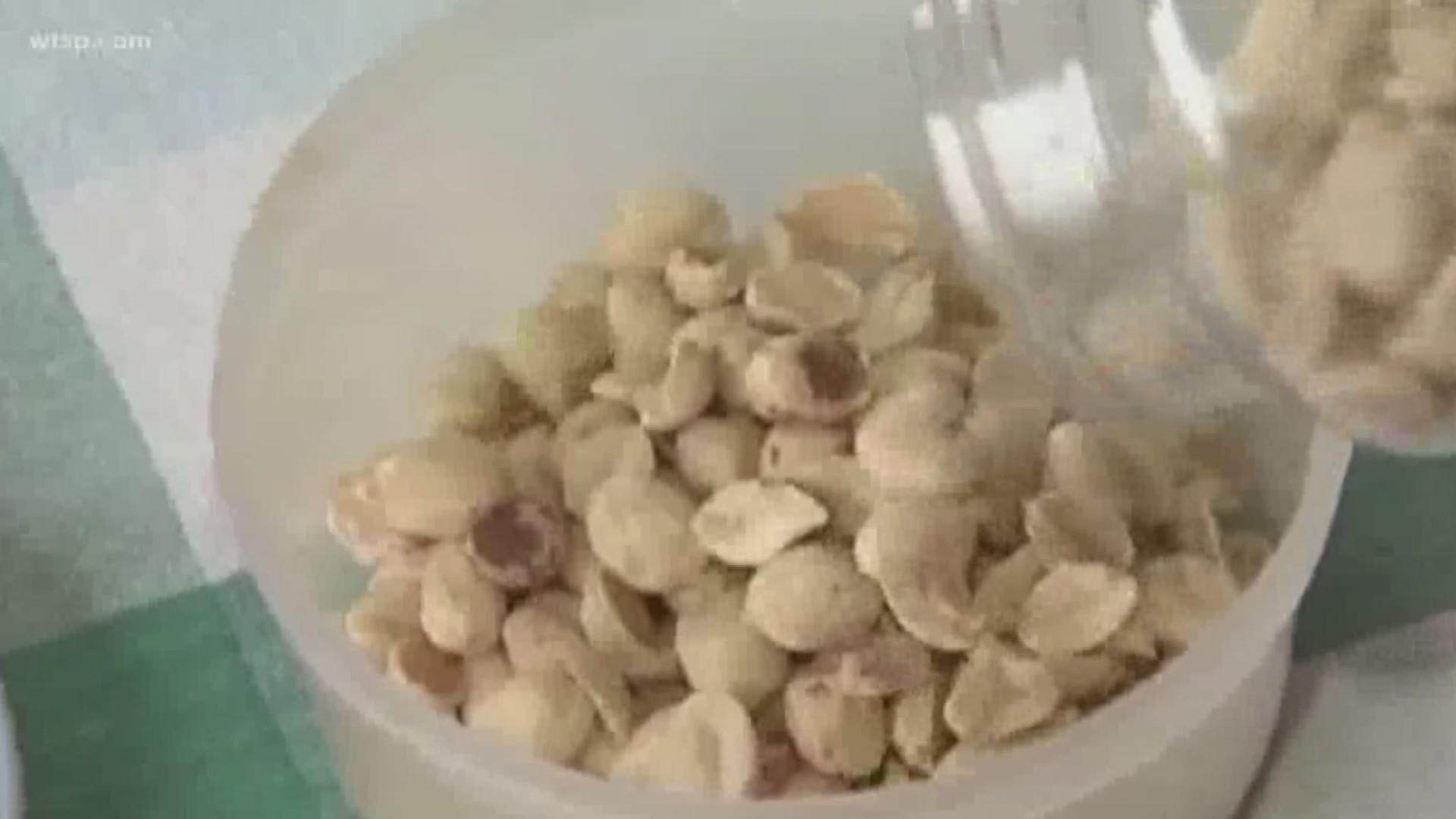TAMPA, Fla. — An estimated 1.6 million children in the United States have peanut allergies.
If it seems like more kids are allergic to peanuts than when you were a child, you're right. The number of school-age kids with peanut allergies has more than tripled, since 1997, according to the nonprofit "Food Allergy Research and Education." FARE says two Studies in the United Kingdom and Canada also showed a high prevalence of peanut allergies in school-aged children.
But, why?
The prevailing opinion about why this is happening is that we have eliminated a lot of threats to the immune systems of children, and that system is seeking out "threats" to which to react. Think of the immune system like a bored husky puppy. If it has nothing to do, it'll chew your couch and dig into your carpet. That's what scientists believe our kids' immune systems are doing. And since so many of our on-the-go snacks contain peanut oils, the immune system "sees" those as an opportunity to do something.
Peanuts also contain proteins that are not found in other foods. That's why the response they can trigger is so violent and life-threatening. Unlike other food allergies, which may cause a rash, nausea, vomiting, or intestinal distress, peanuts can trigger a more severe reaction, causing the throat to swell and even close.
While peanut allergies can be a lifelong problem, about 20 percent of kids will grow out of them. A study published online in the "Annals of Allergy, Asthma and Clinical Immunology," in July 2013, found that 3,188 children surveyed currently had a food allergy, while 1,245 had outgrown one.
What's next?
The newest approach to "curing" peanut allergies is called oral immunotherapy. It's just like it sounds. It's exposure therapy through eating. It's a lot like getting a vaccine, in which your body is exposed to a dead virus and develops immunity to it. In this case, the hope is to desensitize the response. An FDA advisory panel just recommended the therapy, on Sept. 13, in a vote of 7-2. "Alforzia" contains doses of peanut powder that patients put on their food. Here's a link to the presentation, from Sept. 13.
What other people are reading right now:
- Man 'deeply sorry' for raping, killing girl
- He went missing 2 years ago. Then, his body was found. Now, his family is trying to save other kids.
- Cops: 2 daycare employees arrested after video shows little girl dangled upside down, bullied
- 'We really need a lot of prayers': Pasco County firefighter, wife and their infant daughter hurt in crash
- 'I am awesome': How a millennial built a fentanyl empire
- Woman swallowed engagement ring while dreaming about her fiance
FREE 10NEWS APP:
►Stay In the Know! Sign up now for the Brightside Blend Newsletter



